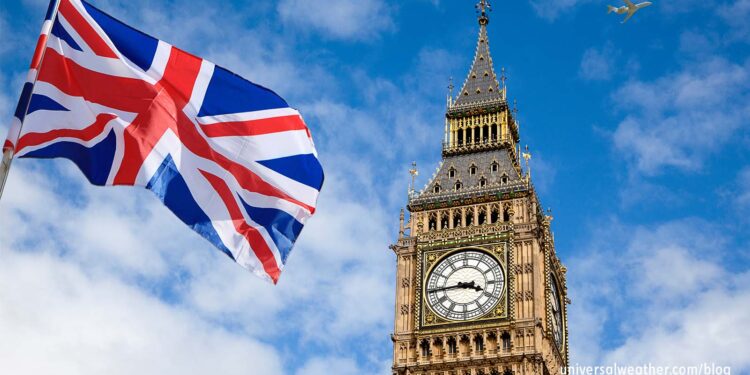Business Aircraft Operations in the UK: Permits and PPRs

This is a post by author Jason Hayward. Jason is general manager for Universal Aviation U.K. – London-Stansted. Jason is an expert on business aircraft operations in the U.K. and can be contacted at jasonhayward@univ-wea.com.
This business aviation blog post is part of a series on operating in the UK and continues from our last article: “Business Aircraft Operations in the UK: Airport Slots.”
For business aircraft operating to the UK, there are situations when Prior Permission Required (PPR) and/or permits, for landing or overflight, may be required. Though this is a straightforward process, there are lead times and information/documentation that need to be considered. Below is an overview of what these situations are and the processes involved.
1. When are PPRs necessary?
A PPR is needed for operation to military airfields in the UK, and request procedures differ depending on the airport. For instance Northolt (EGWU) mandates a PPR. The request requires 24 hours’ advance notice and is made via a local ground handler. At other UK military airports, PPR requests are submitted via the military, with lead time of no less than 48 hours. At some UK airbases – such as RAF Leuchars (EGQL) – PPRs are only issued to General Aviation (GA) during large golfing events. Other locations, however, may accept GA if it does not affect military movements.
2. What information is needed for PPRs?
In all cases you’ll need to provide a full schedule, tail number, full crew/passenger passport information, and insurance valid for the European Union. At military airports it’s important that authorities be advised of all crew/passengers coming in and going out. In the past we’ve seen examples of operators trying to depart with more passengers than pre-advised, and this has caused issues and delays. Be aware that the military does full background checks. If they don’t have accurate crew/passenger information in advance, you may face long delays or being banned from a particular airport.
3. How long is a PPR valid?
Validity of a PPR is normally for the day – based on operating hours of the military airport. PPR revisions may be requested, but approval of short-notice requests is on a case-by-case basis. If a revision is requested outside normal operating hours, it will not be processed. A PPR confirmation number is always given, but this confirmation does not need to be placed in International Civil Aviation Organization section of the flight plan.
4. When are permits required for the UK?
Permits are required for experimental aircraft for both landing and overflight and for all charter (non-scheduled commercial) operator landings.
5. What’s the request procedure for experimental permits?
For an experimental landing or overflight permit, plan on at least 24 working hours’ lead time so long as all required documentation is provided. Permits are processed by Civil Aviation Authority (CAA) during normal operating hours Monday-Friday, 0900-1700 local. An after-hours number is available for emergencies only. Validity of the appropriate permit is 24 hours. Schedule revisions for experimental flights are easily processed, but other types of permit revisions take more time.
6. What’s the charter permit request procedure?
Charter landing permits are processed by CAA during normal operating hours Monday-Friday, 0900-1700 local, with no overtime available. Official permit lead time is five working days, with minimum lead time of at least 48 hours. The only permits that will be processed on short notice may be for emergencies, humanitarian aid, air ambulances, and possibly aircraft with technical issues. All required documentation must be provided with the permit request. A special permit application form must be completed – usually by your 3rd-party provider. Permit validity is 24 hours, after which you’ll need to seek a revision. Be mindful that permit revisions are required for changes to schedule, passenger count, aircraft, or documentation. Charter permits are not required for tech stops as long as no passengers embark or disembark (crew swaps are permitted). For more information on charter permits, please see our article entitled: “UPDATE: Regulatory Changes for UK Charter Permits.”
7. Are permits required for UK overflight?
With the exception of operators on experimental certificates, there are no permit requirements for overflight of the UK. Private non-revenue and charter operations do not require overflight permits.
8. Are fees involved for UK permits?
UK CAA charges a flat fee, and a fast-track fee for short-notice for permits. Third-party providers will charge permit processing fees as communicating with appropriate permit-issuing entities is often a lengthy process.
9. Additional reading: “Business Aircraft Operations in the UK” series index
Links will be added as new articles are published.
- Part 1 – Ground Handling
- Part 2 – CIQ
- Part 3 – Airport Slots
- Part 4 – Permits and PPRs
- Part 5 – Fuel and Security
- Part 6 – Flight Planning, Weather, and NOTAMs
- Part 7 – Culture and Hotels
Conclusion
Be aware that some airports require a PPR in order to travel there, and each airfield that requires one has different lead times to process it. Charter operators to the UK need to be mindful of lead times for charter landing permits.
Questions?
If you have any questions about this article or would like assistance planning your next trip to the UK, contact me at jasonhayward@universalaviation.aero.
Later, we’ll discuss aviation fuel and security for the UK and their impact on your trip.




